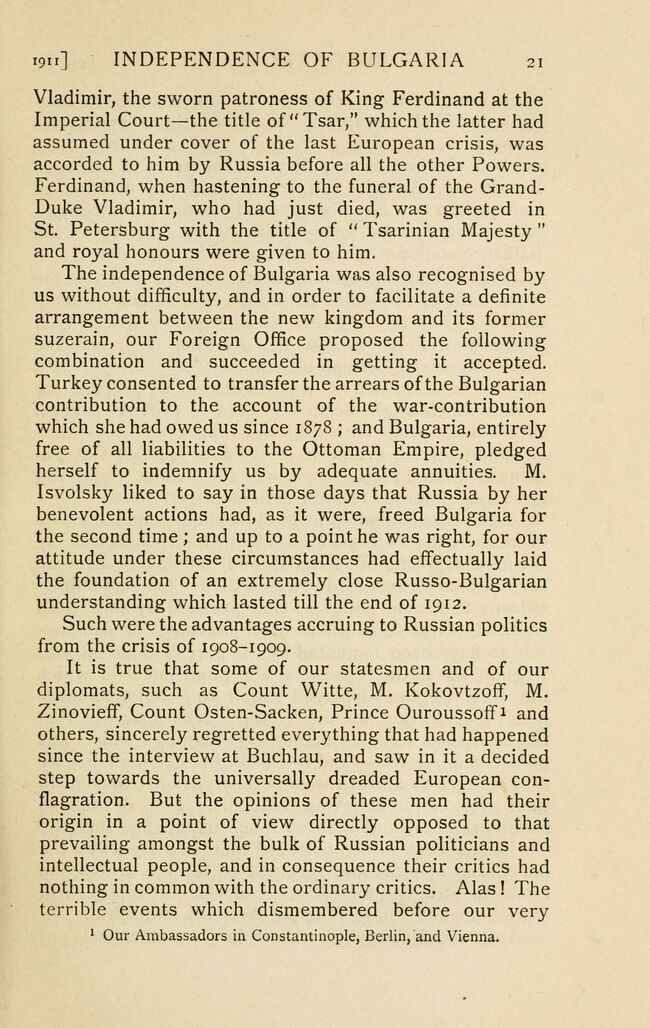
Full resolution (JPEG) - On this page / på denna sida - III. Bulgaria in 1911

<< prev. page << föreg. sida << >> nästa sida >> next page >>
Below is the raw OCR text
from the above scanned image.
Do you see an error? Proofread the page now!
Här nedan syns maskintolkade texten från faksimilbilden ovan.
Ser du något fel? Korrekturläs sidan nu!
This page has never been proofread. / Denna sida har aldrig korrekturlästs.
i9ii] INDEPENDENCE OF BULGARIA
21
Vladimir, the sworn patroness of King Ferdinand at the
Imperial Court—the title of "Tsar," which the latter had
assumed under cover of the last European crisis, was
accorded to him by Russia before all the other Powers.
Ferdinand, when hastening to the funeral of the
Grand-Duke Vladimir, who had just died, was greeted in
St. Petersburg with the title of " Tsarinian Majesty "
and royal honours were given to him.
The independence of Bulgaria was also recognised by
us without difficulty, and in order to facilitate a definite
arrangement between the new kingdom and its former
suzerain, our Foreign Office proposed the following
combination and succeeded in getting it accepted.
Turkey consented to transfer the arrears of the Bulgarian
contribution to the account of the war-contribution
which she had owed us since 1878 ; and Bulgaria, entirely
free of all liabilities to the Ottoman Empire, pledged
herself to indemnify us by adequate annuities. M.
Isvolsky liked to say in those days that Russia by her
benevolent actions had, as it were, freed Bulgaria for
the second time ; and up to a point he was right, for our
attitude under these circumstances had effectually laid
the foundation of an extremely close Russo-Bulgarian
understanding which lasted till the end of 1912.
Such were the advantages accruing to Russian politics
from the crisis of 1908-1909.
It is true that some of our statesmen and of our
diplomats, such as Count Witte, M. Kokovtzoff, M.
Zinovieff, Count Osten-Sacken, Prince Ouroussoff1 and
others, sincerely regretted everything that had happened
since the interview at Buchlau, and saw in it a decided
step towards the universally dreaded European
conflagration. But the opinions of these men had their
origin in a point of view directly opposed to that
prevailing amongst the bulk of Russian politicians and
intellectual people, and in consequence their critics had
nothing in common with the ordinary critics. Alas! The
terrible events which dismembered before our very
1 Our Ambassadors in Constantinople, Berlin, and Vienna.
<< prev. page << föreg. sida << >> nästa sida >> next page >>